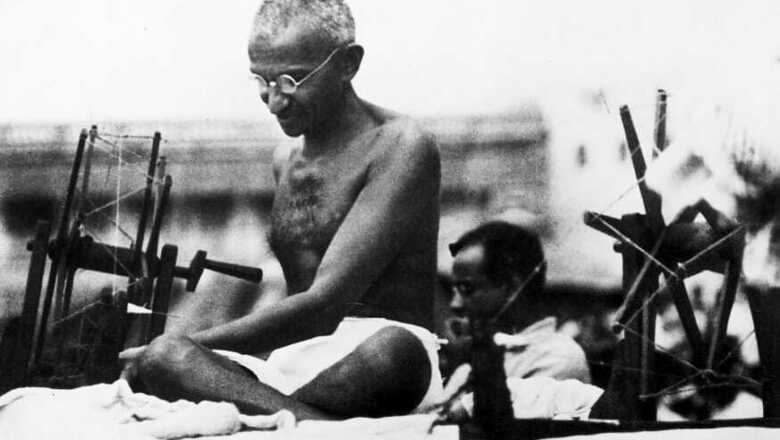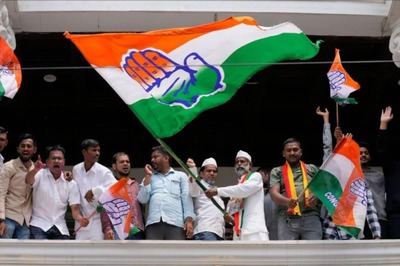
views
New Delhi: A senior lawyer, appointed as amicus curiae by the Supreme Court, has said that there is no need to reopen Mahatma Gandhi's assassination case.
On Monday, senior advocate Amarendra Sharan mentioned the matter before a bench headed by Justice SA Bobde. He informed the court that his report has concluded there is no necessity to re-investigate the assassination after six decades.
The bench said it will take up the matter on January 12, when it would examine a PIL that has sought a re-investigation into the murder on the ground that evidence, which might point at involvement of a foreign agency, had been overlooked.
But Sharan, in his report, maintained that allegation raised regarding involvement of some foreign intelligence agency in the assassination was baseless and not substantiated by any evidence.
“Bullets which pierced Gandhi’s body, pistol from which it was fired, assailant who fired bullets, conspiracy and ideology which led to assassination have all been duly identified. No material has come to light to throw any doubt. There is no need either of a re-investigation or to constitute a fresh fact finding commission with respect to Mahatma Gandhi assassination case," stated the report.
It further told the court that there is no evidence to prove that Mahatma was killed by a “mysterious” person other than Nathuram Godse.
Sharan also trashed the petitioner's theory that it was a “fourth” bullet fired by a mysterious person that took the Mahatma's life.
In October, the Supreme Court had wondered whether it will be “wise and legal” to reopen Mahatma Gandhi’s assassination case after six decades.
The court had raised several questions over the legality and maintainability of the PIL but agreed to examine various aspects of it before taking a final call.
It had then asked senior advocate Amarendra Sharan to go through the petition and several documents relied upon by petitioner Dr Pankaj Phadnis, a researcher and a trustee of Abhinav Bharat, Mumbai.
Phadnis has sought the re-opening of the investigation into Mahatma Gandhi’s murder, suggesting it was one of the biggest cover-ups in history.
In the petition, Phadnis has also questioned the “three bullet theory” relied upon by various courts of law to hold the conviction of accused — Nathuram Godse and Narayan Apte who were hanged to death on November 15, 1949, and Vinayak Damodar Savarkar who was given the benefit of doubt due to lack of evidence.
He has claimed that the Justice JL Kapur Commission of Inquiry set up in 1966 was not able to unearth the entire conspiracy that had led to the killing of Gandhi.
Inspired by Savarkar, Abhinav Bharat, Mumbai, was set up in 2001 and it claims to work for socially and economically weaker sections with a focus on bridging the digital divide.


















Comments
0 comment